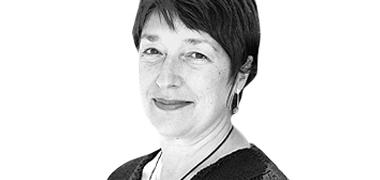We are celebrating the 10-year anniversary of Debats d’Educació by giving the educational community the opportunity to air its views

I am an anthropologist and coordinator of the EMIGRA Group. I work on diversity and educational inequality, particularly among the children of immigrants and minorities, from a comparative international perspective. I am currently vice-rector for students and cooperation at the UAB.
The three things I’ve learned
I believe investment in public education has to be high and is a priority at all educational stages
Education must be considered as the first and most important social policy because it is the only way to reach all children and young people in the country. Ensuring fair enjoyment of education and social school support resources can only be achieved if these resources are of the highest quality and the children and young people are exposed to them without distinction of class or origin. We have historical examples for reference in Catalonia during the 2nd Republic which have never been repeated with such scope or conviction. There are great differences in the quality of educational experiences between the children of rich and poor families. At the moment, we are witnessing the dismantling of plans and improvement programmes that it has been impossible to develop or evaluate properly. Two clear examples are the unjustified discrediting of comprehensive education, which needs time and money to give results, and the undervaluing of research in education policies.
I am concerned that the public and professionals are not horrified by school segregation
I see that a classicist education system and a segregationist school model persist strongly. Both of these – system and school – naturalise educational inequalities because they focus on pupils’ results and not on the opportunities and resources they enjoy. The obsession with assessing products rather than processes and the emphasis on individual effort and capability periodically return, transferring the responsibilities of the education system and the school to the pupils and their families. The most flagrant example at the moment is segregation between schools and within schools, resulting in the progressive expulsion of considerable numbers of pupils – those from the most impoverished social sectors – with one of the highest school drop-out rates in the EU coexisting with high youth unemployment. Lower quality schools or paths have a direct impact on the increase in unfairness.
What is observed in practice and in research is deficient, inconsistent teacher training
It is easy to see that knowledge from the most advanced educational research and the most successful concepts of education and teaching practices are conspicuous by their absence from those responsible for making schools work in practice: the teachers. Fundamental aspects of the educational changes necessary to bring school organisation, curriculum design and teaching and learning activities closer to pupils are based on incomprehensible inertias when an educational and school organisation model like that from Finland is taken as an example. And it does not seem that the training received by infant, primary and secondary teachers can greatly transform inherited concepts and practices about what kind of a place a school should be and what kind of social and emotional relationships should be established to respond to the needs of children and young people and their families and environments in the best possible way. It is a very common to hear tales of frustration from student teachers when they come back from work experience, as well as from new teachers in schools. Other professionals who should be looking out for fairness and quality, such as education inspectors and administrations, do not help very much either.















 The texts published on this website are, unless otherwise indicated, covered by the Creative Commons Spain Attribution 3.0 licence. You may copy, distribute, transmit and adapt the work, provided you attribute it (authorship, journal name, publisher) in the manner specified by the author(s) or licensor(s). The full text of the licence can be consulted here:
The texts published on this website are, unless otherwise indicated, covered by the Creative Commons Spain Attribution 3.0 licence. You may copy, distribute, transmit and adapt the work, provided you attribute it (authorship, journal name, publisher) in the manner specified by the author(s) or licensor(s). The full text of the licence can be consulted here: